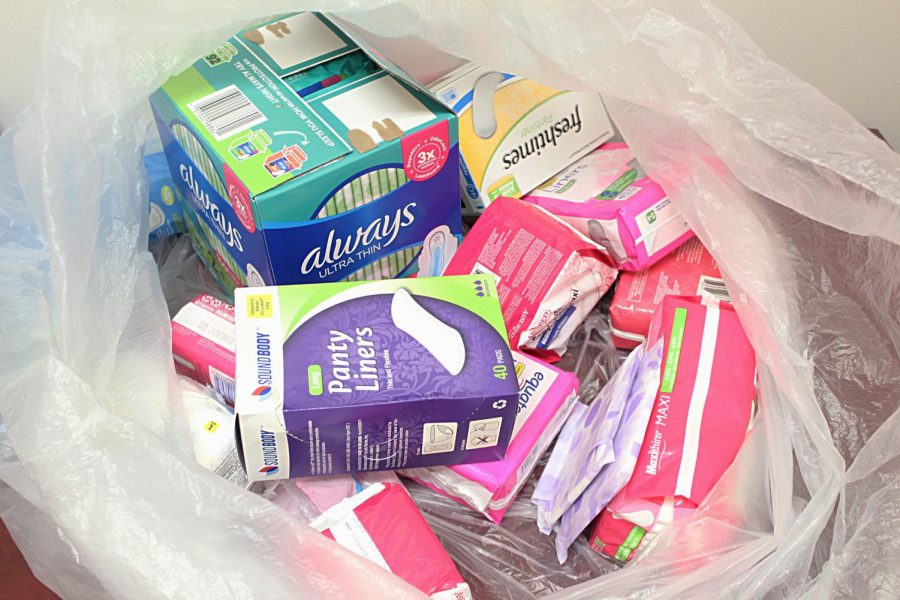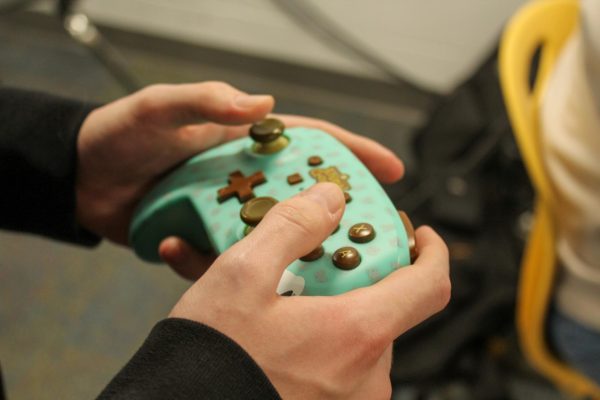There’s an issue – period
Not all students are aware of where and how to find menstrual products on campus.
Period products are free and available to students in the nurse’s office at Lakewood High School.
All this year the Lakewood High School bathrooms have been a constant problem. Whether it be that there are far too few working bathrooms, that they’re the most popular spot for students to skip classes, that they constantly get vandalized – not too many good stories come from the bathrooms on campus.
Hidden behind these other issues is a quieter one that affects more than half the students at Lakewood: the lack of access to period products in the bathrooms.
An informal SNN survey of 81 students concluded that over 90% think it is a problem that there aren’t period products in the bathrooms. More than a dozen explained in a later question that it’s inconvenient, embarrassing and uncomfortable knowing that there isn’t an easy known way to get the things they need when they have their period.
While there are places and staff members students can go if they need these products, but many people don’t know about these locations and people. The nurse, the front office, the CAT office, the pantry – these and an assortment of teachers are all easy ways to get pads, tampons or anything students need, and yet almost 50 people who took the survey didn’t know these resources were available to them until they reached that question. There is no advertising of this resource, and in turn, many people suffer during their periods at school, thinking the only way to get what they need is to ask friends or not come to school at all.
ALMA health sciences teacher Erika Miller agree, that the lack of access to menstrual products is an issue. As one of the staff members who runs the pantry and health teacher, she says many of her students know they can go to her, but there are still a lot of students who don’t know they have this opportunity.
“That’s one of the reasons we have hygiene products, feminine products in the pantry. It’s for the students who need it,” Miller said.
She said there are a lot of taboos when it comes to periods and it makes talking about them awkward and uncomfortable for many students. It’s so under-talked about in the public eye, in the education system and in general that for many it feels like something that needs to be talked about in code or in secret, as 81% of people said in the survey.
“It’s a topic that goes under the radar, but it’s so important,” Miller said.
Senior Antonya Talley feels similarly, but not as passionately about this issue. There needs to be products in the bathrooms, she says, especially for the freshmen and people who don’t usually have things in their bags or on their person. Talley learned that the nurse has things like pads and tampons from a friend and has gone to the office a few times, but not often.
“I think it should be normalized; anything can happen. If there’s anything that happens at school, it shouldn’t be a reason to go home – it’s natural,” Talley said.
While she said she doesn’t feel menstrual issues are under talked about, she does think students should know the nurses’ office is open and that there should be product dispensers in the bathrooms. Twenty nine out of 62 survey-takers agreed. Talley said there should be accessibility, but it’s also an at-home responsibility when it comes to communication and product supply.
According to the survey, an 93% of students have found themselves on campus without products more than twice in their time at Lakewood. Based on prior responses In the survey some of these students likely went to one of the offices and got what they needed, but many didn’t. Many students would have had to use unsanitary alternatives, had to wait on other students for products or had to cope for the rest of the day. And 75% said they’ve missed school due to period-related issues before.
“It’s important that there is education and materials for those of us who may not have the means to get our own products or don’t have parents to teach about periods. It’s so important for anatomy to be taught for both females and males, and periods are part of that,” one anonymous survey taker said.
“Sometimes it’s unknown when our period will come on, and I’ve found myself stuck in the bathroom waiting for another girl to enter to see if she has any feminine products,” said another.
“I feel like it’d be appropriate for them to be accessible in bathrooms for women to feel secure and at ease instead of having to worry about people seeing blood coming out from below the waist while they’re walking from building to building,” said a third.
The survey-takers offered some solutions.
As many have mentioned, knowing the offices, nurses’ office, and pantry have these items would be a good start. Whether that be through signs in the bathrooms, including menstrual and general hygiene products in the advertising for the food pantry, its own announcement – whatever it is, something needs to be said.
Lakewood could also put hygiene dispensers back in the bathrooms like they had in the ’80s and ’90s or a cart with cheap but good products for the students. There are issues with the “cart” idea, how students would misuse it, how it could get vandalized, but things like metal dispensers would make these issues much less probable.
Despite the responses from the survey, principal Erin Savage said she doesn’t believe access to period products is such an issue on campus, because there are easy ways to get them if students simply were to come to the office, nurses’ or pantry. As an educator, she says she thinks that periods are talked about enough and that unless asked about by a student, conversation isn’t all too needed. She says at this level of schooling students have usually already started their cycle, so it only reiterates this point.
“I think schools have taken that out of the curriculum and left it more on the families to educate,” Savage said.
She has no plans to implement any dispensers in the building of the new wings, but she said she still hopes that students know she and other staff are always there to provide a safe space.
Junior Ashley Gielazyn says accessibility to products is a big issue at Lakewood and wants them not only in the bathrooms but for the ones in the office and pantry to be advertised. She didn’t know the office, nurse, and pantry had supplies until taking the survey, and she says this alone is a big issue.
“They have stuff in the office but don’t tell us, it’s not convenient or accommodating at all,” Gielazyn said.
She said she’s often had to text friends or classmates for products and knows many other people who go through the same thing and even more every month. Periods are sometimes this manageable thing, she explains, but often they feel “life altering” for the week or so they occur, feeling “like the flu without the throwing up.” Periods aren’t just blood, but also cramps, headaches, nausea, mood swings and cravings, to name a few things.
“People say, ‘it’s just a period get over it’ like it’s something small or something to be ashamed of,” Gielazyn said. “It’s natural, it shouldn’t have that stigma.”

Howdy LHS! I’m senior Bella Croteau, but people call me Bells, and I’m your SNN Editor in Chief. I use “they” and “them” pronouns. My goal...












